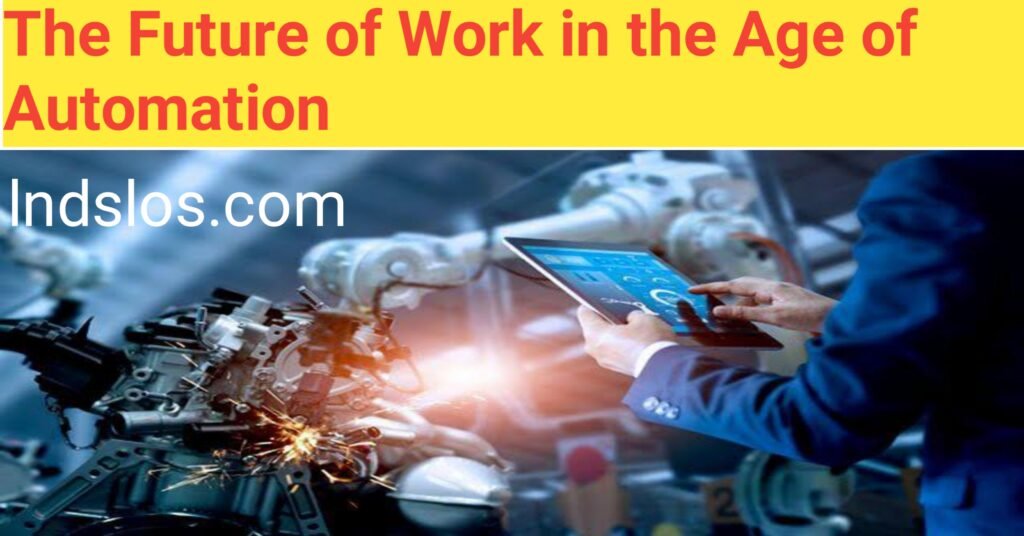
The Future of Work in the Age of Automation
Automation is rapidly changing the world of work. As machines and algorithms become more capable, they are taking over tasks that were once done by humans. This is leading to concerns about job losses and the future of employment.
However, automation is also creating new jobs and opportunities. For example, the rise of artificial intelligence is leading to the creation of new roles in data science and machine learning. And as businesses automate their operations, they will need workers with the skills to manage and maintain these systems.
The future of work will be shaped by the interaction of automation and human labor. In some cases, machines will replace humans entirely. But in other cases, humans and machines will work together in new and innovative ways.
The key to success in the age of automation will be to develop the skills that are in demand. These skills include critical thinking, problem-solving, creativity, and communication. Workers who can adapt to change and learn new skills will be the most successful in the future workforce.
The Impact of Automation on Jobs
The impact of automation on jobs is a complex issue. Some experts believe that automation will lead to mass job losses, while others believe that it will create new jobs.
There is evidence to support both sides of the argument. On the one hand, automation is already replacing some jobs. For example, self-checkout machines are replacing cashiers, and automated customer service systems are replacing call center representatives.
On the other hand, automation is also creating new jobs. For example, the rise of e-commerce has created new jobs in warehouse and delivery work. And the development of new technologies, such as artificial intelligence and machine learning, is creating new roles in data science and engineering.
The net impact of automation on jobs is still unknown. However, it is clear that automation will have a significant impact on the workforce in the coming years.
The Skills Needed for the Future of Work
The skills needed for the future of work will be different from the skills that are in demand today. In the age of automation, workers will need skills that machines cannot easily replicate. These skills include critical thinking, problem-solving, creativity, and communication.
Critical thinking is the ability to analyze information and identify the best course of action. Problem-solving is the ability to identify and solve problems. Creativity is the ability to come up with new ideas and solutions. And communication is the ability to effectively communicate with others.
Workers who possess these skills will be in high demand in the future workforce. They will be able to adapt to change, learn new skills, and work effectively with machines.
Preparing for the Future of Work
The future of work is uncertain, but there are steps that individuals can take to prepare for it. These steps include:
- Developing the skills that are in demand.
- Staying up-to-date on the latest technologies.
- Networking with people in your field.
- Being open to change.
By taking these steps, you can increase your chances of success in the age of automation.
Conclusion
The future of work is changing rapidly. Automation is playing a major role in this change, and it is important to understand the implications of automation for the workforce.
While automation will lead to job losses in some sectors, it will also create new jobs in others. The key to success in the age of automation will be to develop the skills that are in demand. These skills include critical thinking, problem-solving, creativity, and communication.
By taking steps to prepare for the future of work, you can increase your chances of success in this rapidly changing world.
FAQs about the future of work in the age of automation
| Question | Answer |
|---|---|
| What is automation? | Automation is the use of machines to perform tasks that were previously done by humans. |
| What are the implications of automation for jobs? | Automation is likely to displace some jobs, while creating new ones. The jobs that are most at risk of automation are those that are repetitive, routine, and require little creativity or critical thinking. |
| What can be done to prepare for the future of work in the age of automation? | There are a number of things that can be done to prepare for the future of work in the age of automation, including: |
* Investing in education and training to help workers develop the skills they need to succeed in the new job market.
* Adopting new technologies in a way that creates new jobs and protects existing ones.
* Taking steps to upskill and reskill yourself so that you are prepared for the future of work. |
| What are the benefits of automation? | Automation can lead to a number of benefits, including: * Increased productivity and efficiency. * Reduced costs. * Improved safety. * Increased flexibility and agility. | | What are the challenges of automation? | Automation can also lead to a number of challenges, including: * Job displacement. * Inequality. * Data privacy and security concerns. * The need for new skills and training. |








Leave a Reply